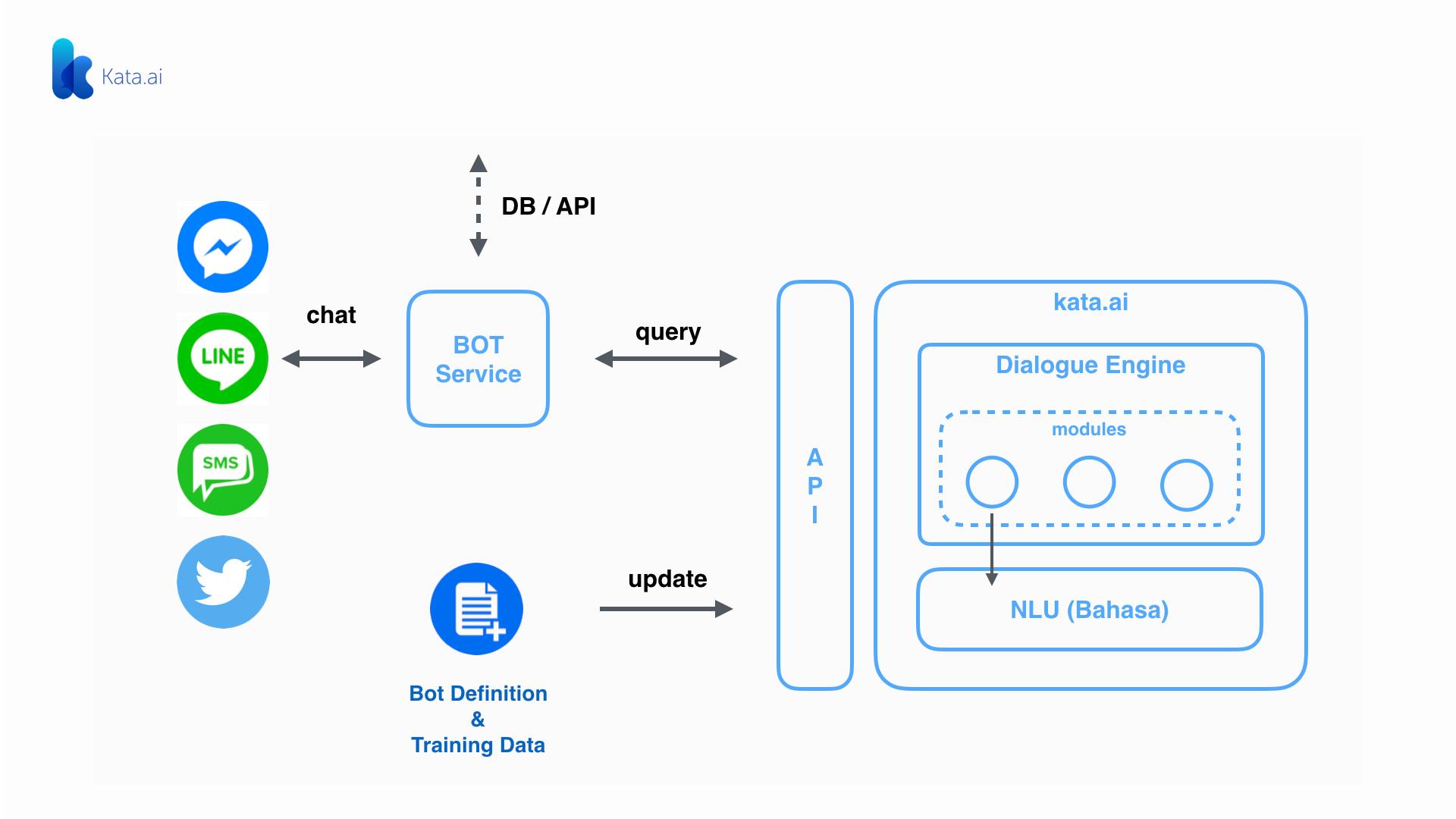//

Photo credit: Pixabay.
On the last Friday of October, 35 employees at the YesBoss office in South Jakarta cleared their desks. It was their last day working for the startup.
“We had a small farewell,” says CEO Irzan Raditya. “We made it as if it were a graduation.”
YesBoss announced late September that it would phase out its Magic-like virtual assistant within a month. It let you send out simple requests via SMS or app. You could, for example, ask for a table reservation, concert tickets, or send someone flowers. The task would be solved for you effortlessly – you wouldn’t even need to open a website. In the background, a customer service team would process your requests.
Like similar startups in the region, YesBoss struggled to make this concept work at scale. It wasn’t efficient.
See: Magic-clones in Southeast Asia are dying

The core team of YesBoss in a photo from 2015. The service shut down at the end of October. (l-r) Wahyu Wrehasnaya (CCO), Rizqi Meydiarso (CTO), Irzan Raditya (CEO), Chris Franke (COO). Photo credit: YesBoss.
A year’s worth of data
The realization didn’t come as a surprise.
“We saw this all along, we knew from the beginning that [a virtual assistant service] is only possible if artificial intelligence comes into play. And we knew we needed the dataset,” says Irzan.
While running the consumer-facing assistant service for over a year, the team had been collecting and analyzing hundreds of thousands of customer interactions – variations of “Hey, can you get me a pizza please?” “I’d like to book a flight to Singapore,” and so on.
YesBoss’ recently dismissed customer service staff helped create the technology that replaced them.
This was a goldmine for the engineering team led by CTO Rizqi Meydiarso, who used the data to train a chatbot engine.
Chatbots are programs that can simulate human-like speech and assist customers in solving technical problems or lead them through online transactions. They’re designed to reduce the need for real human involvement in these repetitive tasks to a minimum.
Rizqi was seeing good results.
“The YesBoss data is great for this because we can cluster the states of an order. Are we still in payment? Cancelling? Changing dates?” he explains.
His team had started to run custom applications of the engine on top of business clients’ data. They secured partnerships with Microsoft, Infomedia Nusantara (Indonesia’s largest customer support center), and logistics provider Acommerce.
Irzan says the opportunity to work with business clients was taking off, while making the original YesBoss service fully automated was still far away and would require further investment. That’s how the decision came about to shelve the consumer-facing virtual assistant – at least for now.
See the irony here? YesBoss’ recently dismissed customer service staff helped create the technology that could eventually replace them.
“We’re still on good terms with all of them,” Irzan assures.
First there was a word
Conversational bots hold high promise. They could make ecommerce transactions and customer support so much easier. Imagine them sitting between us, the messenger apps we already use every day, and other sites like online travel agents or ride-hailing apps. Instead of having to navigate to them, let alone download another new app, you simply ask the bot to do what you want by typing a few lines. That’s just one of several game-changing ways to use chatbots.
That’s why technologists all over the world are burning the midnight oil to improve them.
Facebook introduced chatbots with its acquisition of Wit.ai, Google has Api.ai, and Microsoft has its own ambitious bot framework.
YesBoss wants to play in the same league. The new platform it launched – reincarnating fragments of YesBoss’ virtual assistant – is called Kata.ai.
Kata is Indonesian for word.
For now, Kata only handles clients on an individual basis. By 2017, Irzan says, the platform is ready to let developers interact with its engine through an application program interface (API). It will charge on a subscription basis. A variety of clients can use Kata, he explains – for example, ecommerce startups, call centers, or messenger apps wishing to learn more from their users’ data.
What’s Kata’s advantage over existing solutions from Microsoft, Google, and co? The answer is language. For a conversational bot to be useful in Indonesia, it has to understand how locals chat.
With Indonesian, Irzan says, “the problem is the language itself, there’s no proper grammar.” For example, verbs don’t have a past tense or future tense.
Colloquial Indonesian as it is used in most conversations online tends to use abbreviations, and people often mix in English words or dialects.
“The word ‘I’ alone has no proper translation,” Irzan explains. Indonesians use the formal “saya,” the less formal aku, Jakarta-slang gue, or variations like gw to refer to themselves.
Some platforms, like Wit, offer rudimentary Indonesian language support. And, of course, Irzan and Rizqi have toyed with it to see how it stacks up to Kata. They’re not impressed.
“We can’t make an apples-to-apples comparison, since the (Wit) API is limited. We can only train using their dashboard, so we can’t import our own training data. But using their dashboard, we can’t get a satisfying result for Indonesian language. In comparison, creating a usable bot for English with Wit was pretty straightforward and didn’t require much training.”
The most advanced platform for NLP in Indonesian
In Irzan and Rizqi’s eyes, when it comes to Indonesian language bot support, nothing currently beats Kata.
“Kata.ai is certainly aiming to become the most advanced platform that offers Natural Language Processing (NLP) technology in Bahasa Indonesia,” the startup confidently proclaimed at Kata’s launch.
It has the tech muscle to make that happen.
Rizqi earned his chops as a simulation engine developer at Eurofighter in Germany. And the team has Jim Geovedi – an internationally respected hacker, security expert, and one of the first to tinker with artificial intelligence in Indonesia – advising the company.

Hacker and security expert Jim Geovedi. Image credit: Wikimedia.
“Jim has more than five years of experience in AI and maybe three years in deep learning,” Rizqi says. “He was ahead of his time. Long before chatbots were hyped, he already built one for Twitter.”
That was Begobet, a slightly goofy bot that would react to people’s tweets. It was launched in 2009.
But technology has become much more sophisticated since then, Rizqi says. Deep learning brought a significant breakthrough: it allowed software to learn patterns, such as in the way sentences are constructed, much more effectively than previous algorithms.
Rather than just being a funny counterpart for online banter, bots can now handle transactions with high accuracy.
Team restructure
On Monday, right after the team size took a drastic cut, the mood at YesBoss’ office was slightly downbeat.
YesBoss banners still decorated the big open-plan office, and it’s clear the team has been so busy launching Kata that they haven’t given much thought to tackle the whole rebranding process.
The company still calls itself the YesBoss Group. In the Philippines, where YesBoss had acquired another startup for regional expansion, it’s still running the virtual assistant.
“But our main focus is Kata now,” says Irzan.
The team is undergoing some restructuring. Developers who had previously worked on the YesBoss app are turning into backend engineers.
For the 35 customer service staff members who left, it may become more difficult to find jobs in the same profession.
Not only YesBoss is shifting away from human-powered customer service. In September, ecommerce startup Sale Stock let go of hundreds of support staffers. Sale Stock, Irzan lets on, is also working on a chatbot.
This post Indonesian speaking chatbots are here – soon everyone can use them appeared first on Tech in Asia.
from Startups – Tech in Asia https://www.techinasia.com/kata-chatbot-platform-for-indonesian

